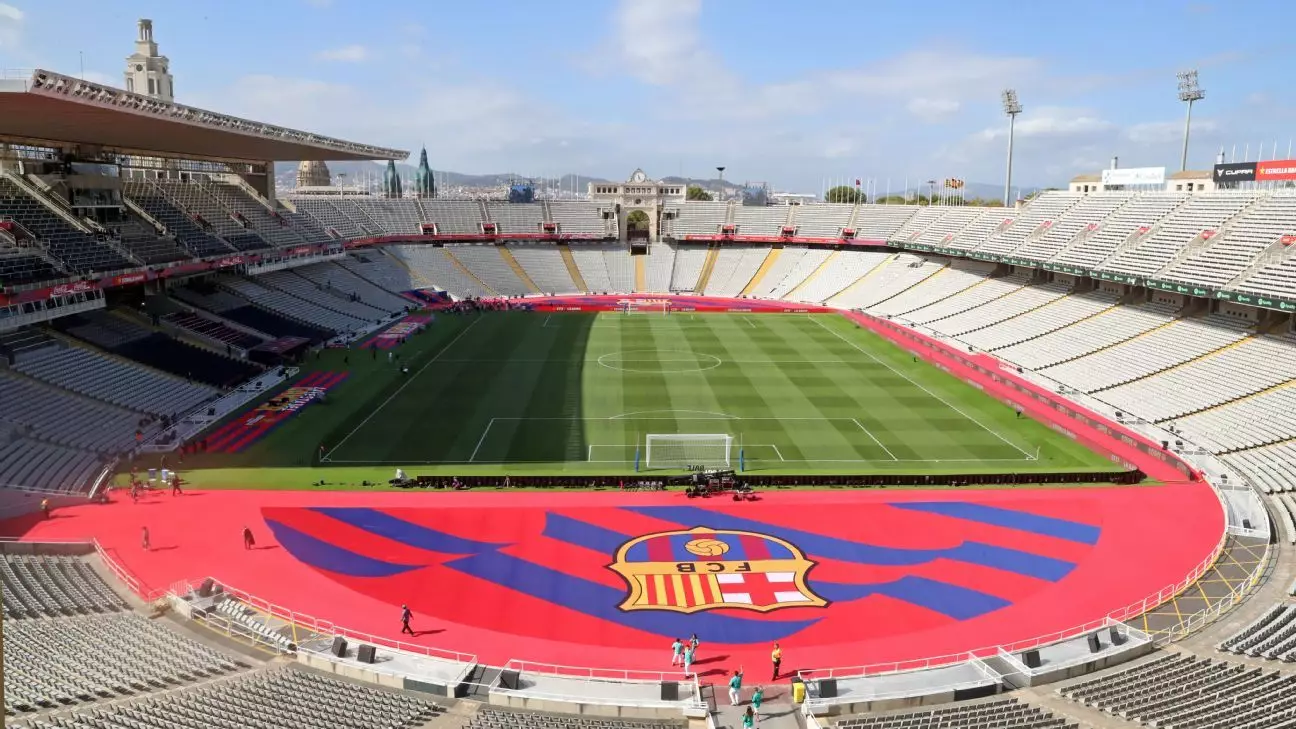In the world of football, logistics can often make or break a team’s season. FC Barcelona finds itself in a precarious situation as it seeks to extend its lease at the Olympic Stadium in light of ongoing renovations at its home ground, Camp Nou. Originally anticipating a timely return last November, the club has now faced significant delays, prompting a formal request to keep their temporary venue until the end of May. This decision is critical as it aligns with their upcoming fixtures, particularly the highly anticipated Clásico against Real Madrid.
The challenge for Barcelona lies not only in the timing of the renovations but also in the implications of their extension. With the lease at the Olympic Stadium set to lapse at the end of April, the possibility of being without a home ground for pivotal matches could disrupt their season. The extension request serves as a safeguard, ensuring that the Blaugrana can complete their final two home league games crucial for securing points in the season’s concluding stages.
Rolling Stones Concerts and the Future of Football in Barcelona
Previously, the lease at the Olympic Stadium faced hurdles due to a series of Rolling Stones concerts scheduled for the venue. However, recent announcements of concert postponements have provided Barcelona with a renewed opportunity. This shift enhances their positioning, allowing them to refocus their efforts on maintaining a competitive edge in both domestic and possibly international arenas. Several reports speculated about the potential of relocating the Clásico abroad—a scenario that would have major financial implications and disrupt the traditional fervor surrounding such encounters.
By securing the lease, Barcelona can retain a sense of normalcy among their supporters, who eagerly anticipate the return of thrilling matches against their fiercest rivals. The scheduled May 11 clash against Real Madrid and the subsequent match against Villarreal highlight not only the excitement of the season’s conclusion but also Barcelona’s commitment to retaining their historical roots in the city.
Despite their efforts to maintain a foothold in familiar grounds, the situation at Camp Nou remains complex. When Barcelona does finally return, renovations will still be underway, with initial attendance capped at 60,000. This circumstance reflects the broader theme of evolution within one of football’s most iconic stadiums. By 2026, the project aims to elevate Camp Nou as the largest stadium in Europe, capable of hosting around 105,000 fans. This transformation signifies not only a physical enhancement but also an ambitious leap into the future of football.
Alongside the focus on stadium logistics, Barcelona is also witnessing transitions within its squad. The club has confirmed the sale of young midfielder Unai Hernández to Al Ittihad for an initial fee of €4.5 million. Hernández’s development on the reserve team has underscored Barcelona’s commitment to nurturing talent within its ranks. Scoring nine goals in 20 appearances highlights his potential, yet his departure raises questions regarding the club’s strategy in balancing the old guard with new signings.
As FC Barcelona navigates through these transitional waters, its decisions reflect a combination of ambition and necessity. Retaining a place in the Olympic Stadium while preparing for monumental changes at Camp Nou represents a pivotal moment in the club’s storied history, signaling a future that blends tradition with modernization in the heart of Catalonia.

